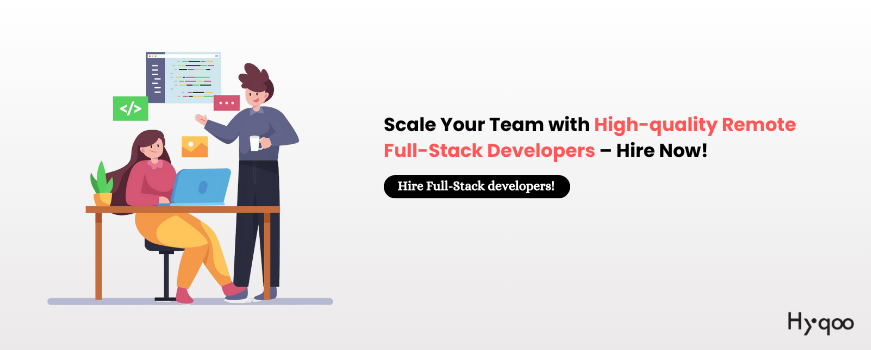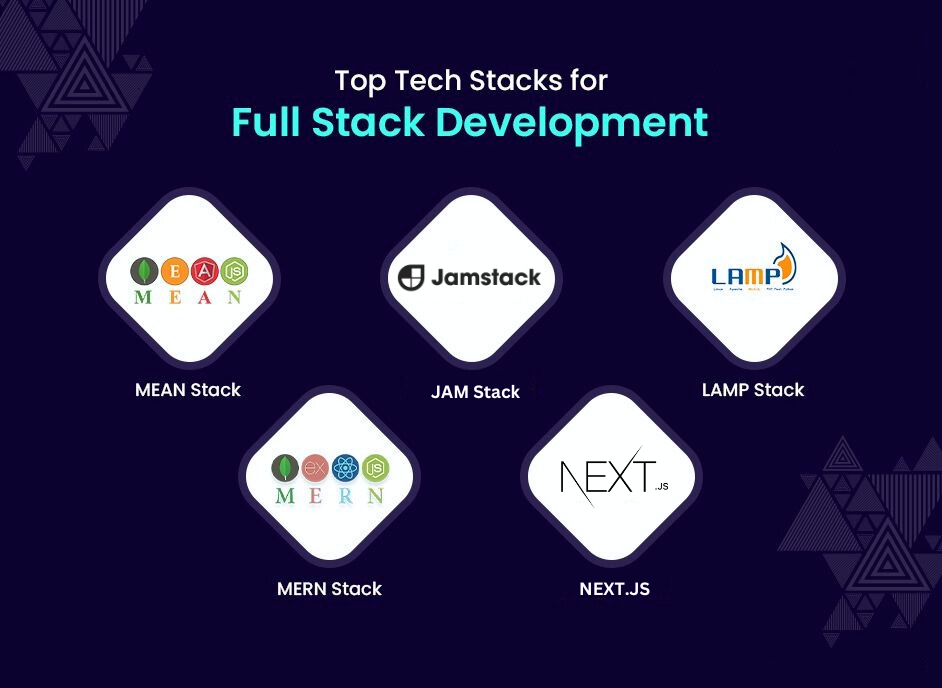9 Mins
9 Mins
Share Article
Subscribe and get fresh content delivered right to your inbox

10 Mins
AI in design has evolved from a productivity tool into a creative collaborator. This article explores how designers use machine learning and generative tools to automate tasks, accelerate prototyping, personalize experiences, and enhance every stage of the design process. It also examines the skills required, the challenges teams face, and why human judgment remains central as AI reshapes modern creative workflows.
Continue Reading

13 Mins
The experiment phase is over. By 2026, enterprise AI shifts from passive generation to autonomous, governed, and measurable operations, and the window to prepare is narrowing.
Continue Reading

9 Mins
Thinking about transitioning from Data Engineer to AI Engineer? Understand the key differences first. Data engineers build ETL pipelines and data infrastructure using Airflow, Spark, and Snowflake. AI engineers deploy ML models and create intelligent applications using PyTorch, TensorFlow, and LangChain. This comprehensive 2026 guide compares roles, skills, required tools, and provides a clear transition roadmap for your career.
Continue Reading
Subscribe and get fresh content delivered right to your inbox
Hiring expert talent is essential for any organization to grow and soar to success because, more than technology, an organization’s progress depends upon its workforce. Full-stack developers are highly in demand because of their versatile skill set, as they can deal with both front-end and back-end.
This comprehensive skill set enables them to contribute to different phases of development, making them a valuable asset in building end-to-end solutions. On the front end, they work with user interface and design, and on the back end, they manage the server-side logic, databases, and the overall functionality of the applications.
Hiring an experienced full-stack developer is similar to onboarding a skilled chef with expertise in cooking a full-meal course. In this competitive world, where the number of professionals exceeds the quality of talent, it is difficult to source and hire the right full-stack developer who can manage your workload and meet your requirements.
However, there are different hiring models that you can use to hire full-stack developers, for instance, near-shore augmentation and off-shore staff augmentation. You can even hire freelance full-stack developers using talent cloud platforms. Hyqoo’s AI Talent Cloud platform helps in filling a vacant position within 2-3 days.
The traditional hiring process is time-consuming and tedious. The HR manager posts a requirement on different hiring channels; then, the team sorts out from the list of applications to find suitable professionals that meet the desired job description. Then, hiring rounds take place, which include the technical round, the managerial round, and the HR round, and then onboarding takes place if the professional manages to get through all the rounds successfully.
The entire process can take a month or two to close the vacancy. Now, this can seriously impact the projects if there is an immediate requirement and the hiring of an experienced full-stack developer needs to be closed immediately. This is where Hyqoo’s AI Talent Cloud comes into the picture to accelerate the hiring process and close the vacancy by hiring a freelance full-stack developer.
The talent cloud platform is powered by AI capabilities, meaning that, unlike traditional cloud platforms, AI-driven platforms utilize advanced ML algorithms and Natural Language Processing to assess the professional’s job profile and job description. With an AI-powered talent cloud platform, hiring full-stack developers remotely can be streamlined in the following ways:
During your interview with the professional, the AI-powered platform analyzes the professional’s tone, language, and response pattern to gauge traits like empathy, resilience, and communication style. It even performs sentiment analysis on written responses to assess a professional’s attitude and other emotional intelligence traits.
Full-stack developers excel at combining different technologies, which can simplify the hiring process. You should know about the different combinations of front-end and back-end technologies to architect and implement scalable and robust applications.

Components: MongoDB (NoSQL Database), Express.js (Web Application Framework for Node.js), AngularJS (Front-end), Node.js (JavaScript Runtime Environment)
This stack is ideal for dynamic web applications and real-time apps, like chats and streaming services. It is also recommended for single-page applications that require prompt client-side rendering.
Components: MongoDB (NoSQL Database), Express.js (Web Application Framework for Node.js), React.js (JavaScript Library for building user interfaces), Node.js (JavaScript Runtime Environment)
MERN Stack is popular for developing social media applications, eCommerce websites, and other large-scale web applications.
Components: MongoDB (NoSQL database), Express.js (Backend framework for Node.js), Vue.js (Frontend framework), Node.js (JavaScript runtime)
It is perfect for dynamic, single-page, and progressive web applications. Due to Vue.js’ lightweight nature, this stack is recommended for small—to medium-sized projects.
Components: Linux (Operating System), Apache (Web Server), MySQL (Database), PHP (Server-side scripting language)
This stack is frequently used for content-driven websites, like blogging platforms, eCommerce platforms, and CMS applications. It is used for projects that require relational database structure and traditional web hosting setup.
Components: JavaScript (for client-side dynamic functionality), API (for Back-end services or microservices), Markup (Pre-built HTML)
JAM stack is ideal for static websites, landing pages, and headless CMS implementation. It is suitable for websites that prioritize performance and security, like eCommerce storefronts and documentation websites.
Components: Next.js (React framework that offers server-side rendering, static site generation), Node.js (JavaScript runtime environment)
This stack is recommended for eCommerce websites and blogging platforms that need both dynamic and static content. It is also used for applications that want SEO optimization and high loading times because server-side rendering improves user experience, leading to better search engine rankings.
These categories are not exhaustive, and the tech stack may differ according to your project needs. Hiring experienced freelance full-stack developers with hands-on knowledge of multiple stacks can help you adapt to different project needs.
Here are a few prominent boons of hiring a reliable full-stack developer:
1. Versatility Across the Technology Stack
Full-stack developers understand both the front and back ends of a site or application. They can perform a wide range of tasks, including designing the user interface and managing server-side logic. This characteristic allows for fluent integration between diverse parts of your applications, making the development process more harmonious.
2. Cost-Effectiveness
Validating operations with a full-stack developer can help avoid staffing many employees for specific tasks, thus reducing costs. The ability to manage entire projects decreases the expenses of coordinating between different front-end and back-end teams.
3. Accelerated Development
Being well-informed about the timeline and development processes in software development, full-stack developers can optimize work and expedite projects. Their broad view enables them to diagnose problems quickly and resolve them, which at the end of the day, results in faster product development.
4. Enhanced Problem-Solving Skills
Full-stack developers are skilled in ad hoc problem-solving and can identify and resolve problems at the application’s multiple layers. This ability to pick, roll, and enhance existing parts of software ensures that there are more end-to-end and dependable solutions.
5. Adaptability to Emerging Technologies
It has become imperative to stay familiar with the latest technological trends for future adaptability. Full-stack developers can easily update themselves with the new technologies, thus keeping your business up to date with the new developments.
The requirement for a full-stack developer in your remote team can be easily bridged with the introduction of improved employment models. Freelance developers are more flexible in adapting to your organization’s needs and cost-effective for a short-term project.
However, before you hire an experienced freelance full-stack developer, it is important to have a clear idea of what you are expecting from the professional. This will help you understand whether a particular full-stack developer is perfect for your project and your organization. You should also focus on professional multi-tasking skills because, during the project, they will find themselves in situations where they have to deal with different tasks simultaneously.
With the continuously changing business environment, it is essential to focus on more agile development because they need to roll out applications quickly to meet business demands. Whether you are hiring a full-stack developer remotely as a product manager, senior developer, or database administrator, Hyqoo can help you hire a skilled full-stack developer for remote opportunities easily. Send your requirements to us, and we will find you a suitable professional matching your needs.
1. What are the technical skills that a full-stack developer must be proficient in?
Here is the list of technical skills that a full-stack developer should know:
2. Are full-stack developers in demand?
Yes, the insights by the US Bureau of Labor Statistics predict that the jobs for full-stack developers will increase by 22% from 2020 to 2030. Startups and enterprises prefer to hire full-stack developers because of their comprehensive skillset and proficiency in both front-end and back-end aspects of an application.
3. Can AI replace full-stack developers?
No, AI cannot replace full-stack developers, but it can significantly change the way they used to work. For instance, LLM can work as a virtual assistant to full-stack developers to complete the code and finish the documentation, thanks to its content generation capabilities. This will allow the full-stack developers to focus their efforts and skills on coming up with effective solutions and features to improve applications.